
Nick Abbot 10pm - 1am
26 June 2023, 18:44 | Updated: 26 June 2023, 18:58
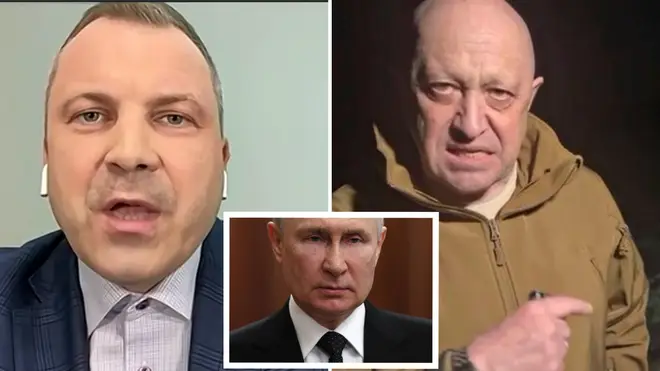
A Russian MP who supports Vladimir Putin has issued a stark warning after the mutiny led by Wagner Group chief Yevgeny Prigozhin.
Yevgeny Popov, a deputy in the United Russia party, told LBC's Andrew Marr that "no one is safe from Russian justice", after Prigozhin retreated to Belarus following the uprising on Saturday.
Prigozhin claimed earlier on Monday that his Wagner Group mutinied in protest at the prospect of the private army being disbanded in July, not to topple the Putin regime.
Asked by Andrew if Prigozhin was safe in Belarus, Mr Popov said: "Nobody is safe from Russian justice if you are a [criminal]. You will be punished."
But he pointed out that Prigozhin has "security guarantees" from Putin.

TWAM Mono 26.06
Mr Popov added: "His fighters are going to take part in the conflict in Ukraine. They of course made crime against Russians. Thank God we don’t have any huge blood here. They are going to fight.
"They should be punished. But first of all we should and must follow the president’s decision in this case.
Mr Popov said it was "a difficult situation" but that Russia was "still stable" because "nobody supported those mutineers."
Branding Prigozhin a "traitor", the MP added: "If you’re waiting for a coup, if you’re waiting for a crisis, if you want to change the regime in Russia, you’re going to wait forever.
"Yes it was a crisis situation during the weekend and we’ve been the witnesses to a mutiny, and of course it was difficult to understand why Prigozhin did it."
But Mr Popov denied that the mutineers would have been able to take control of Moscow, claiming that there were two lines of defence in front of the capital.
He also claimed that Putin was still in Moscow, despite reports that he had left the city during the mutiny.
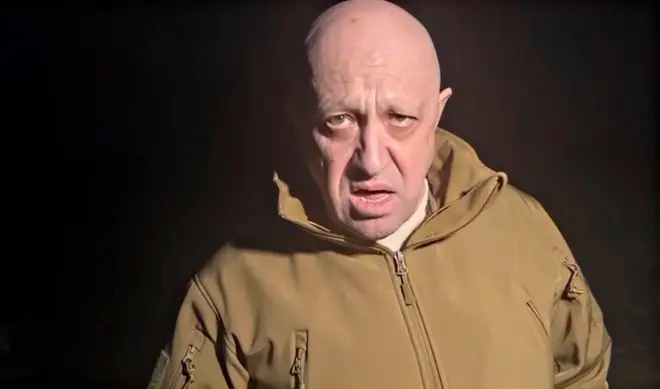
It comes after Prigozhin spoke out publicly on Monday afternoon for the first time since he retreated to Belarus after calling off the march.
He said that the aim of the march was not to bring down Vladimir Putin's regime, but to show the group's displeasure at the decision to shut down Wagner Group on July 1.
He said in a voice note: "As a result of intrigues, ill-conceived decisions, this unit was to cease to exist on July 1, 23.
"A council of commanders gathered that brought all the information to the fighters: no one agreed to sign a contract with the Ministry of Defence...
"The soldiers who decided that they were ready to move to the regulart army, moved on. But this was a very small amount."
Prigozhin said he was against the decision to disband Wagner, and the decision was made at "the most inopportune moment".
He added that they decided to go to Rostov to hand over their equipment.
"Despite the fact that we did not show any aggression, we were attacked by missiles and immediately after that the helicopters worked. About 30 people, fighters of PMC "Wagner" were killed. Some got hurt.
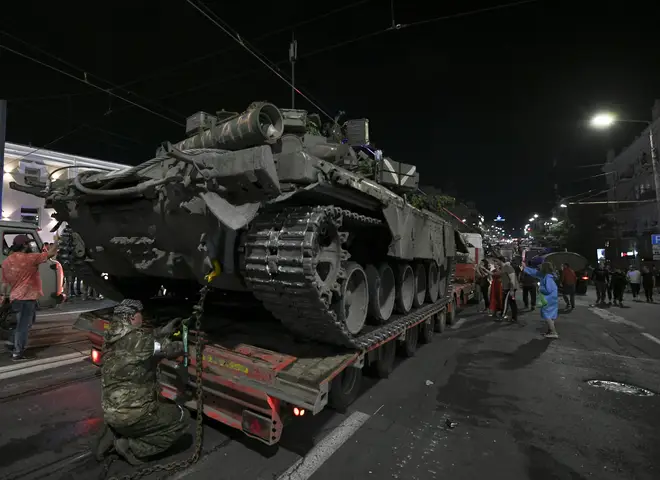
"This was the trigger for the fact that immediately the council of commanders decided that we should advance immediately.
"We covered 780 kilometres in a day. No infantry troops were hurt. We regret that we were forced to strike at air assets, but these assets dropped bombs and launched missile strikes."
He added that the aim of the march was "to prevent the destruction of Wagner" and "to bring to justice those persons who, through their unprofessional actions, made a huge number of mistakes" in the war in Ukraine.
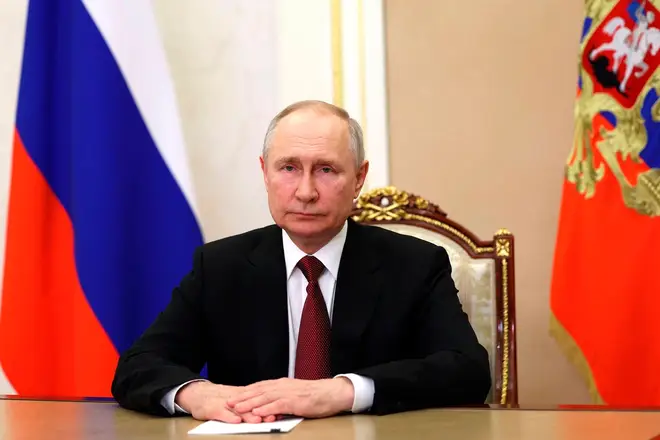
Prigozhin said: "We stopped at the moment when the first assault detachment came within 200 kilometres of Moscow, deployed its artillery, reconnoitred the area, and it was obvious that at that moment a lot of blood would be shed. Therefore, we felt that the demonstration of what we were going to do was enough.
"We went to demonstrate our protest, and not to overthrow the government in the country.
Prigozhin said Wagner's march through the country showed the "most serious problems".
"We blocked all military units, airfields that were on our way," he said.
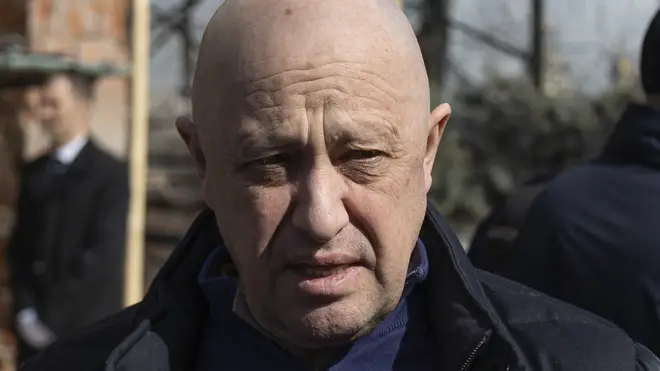
Although he is not currently facing any criminal charges for the extraordinary threat to Putin's regime, the private army chief's life could still be in danger, according to former CIA director General David Petraeus.
"Prigozhin kept his life, but lost his Wagner Group," Gen Petraeus said.
"And he should be very careful around open windows in his new surroundings in Belarus, where he's going."
Despite the coup's failure, British diplomats are preparing for the fall of Putin.
"This could be Chapter One of something new", a government source told The Times.
They added: "We have to watch, wait and see what comes next."
Read more: Alicia Kearns and Matt Frei dig deep into the Wagner mutiny in Russia
Prigozhin suddenly reversed Wagner's march on Moscow after a deal with the Kremlin orchestrated by Belarusian president Aleksandr Lukashenko.
It's thought between 5,000 and 8,000 Wagner troops were moving towards the capital when they received the order to stand down.
The private army's vehicles were spotted on motorways close to Moscow shortly before the coup came to a swift end.
Prigozhin had promised "Soon there will be a new president" after Putin appeared on state television to brand the Wagner rebels traitors.
It's been suggested that the loved ones of Wagner soldiers had been threatened by Putin's allies in the run-up to the reversal.
The Kremlin has promised Wagner soldiers who did not take part in the hours-long effort that they can join the Russian defence forces.
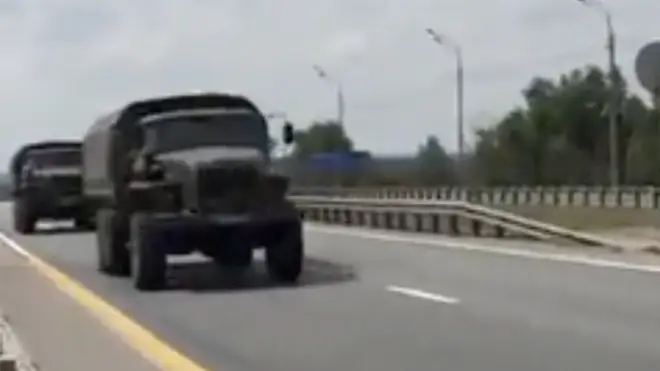
Experts have quashed suggestions that the coup was staged in order to strengthen Putin's authority.
Institute for the Study of War (ISW) analysts said: "The Kremlin now faces a deeply unstable equilibrium. The Lukashenko-negotiated deal is a short-term fix, not a long-term solution, and Prigozhin's rebellion exposed severe weaknesses in the Kremlin and Russian MoD.
"Suggestions that Prigozhin's rebellion, the Kremlin's response, and Lukashenko's mediation were all staged by the Kremlin are absurd.
"The rebellion exposed the weakness of the Russian security forces and demonstrated Putin's inability to use his forces in a timely manner to repel an internal threat and further eroded his monopoly on force."
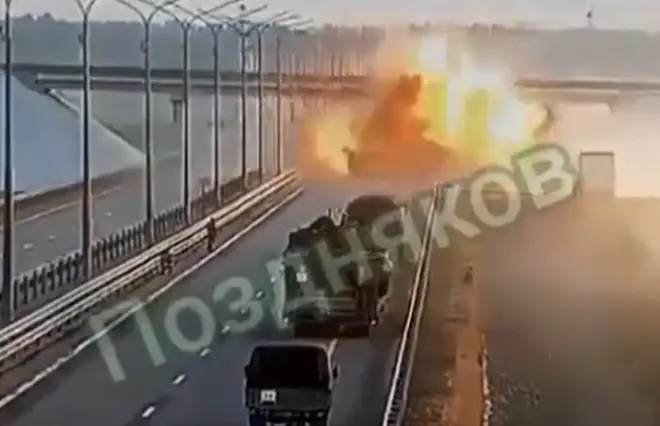
Prigozhin claimed a Wagner camp near Bakhmut in Ukraine had been attacked by the Russian military after months of criticising the leadership.
He then marched his mercenaries over the border, apparently facing no resistance from young conscripts before rolling into Rostov in the south of Russia.
Wagner forces held the city along with Voronezh, just 300 miles from Moscow.
He said it was a "march for justice" and that he had 25,000 men willing to die.
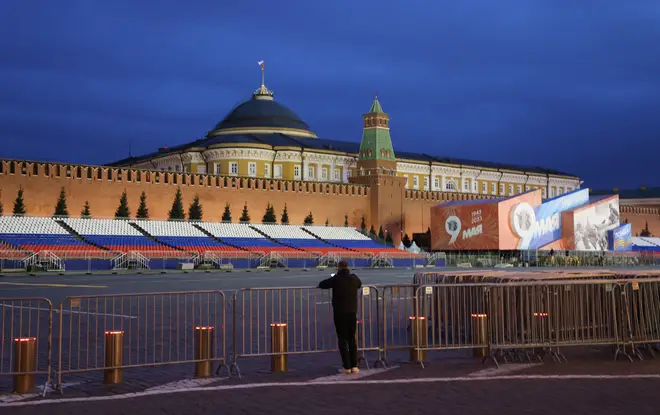
Putin's spokesman was forced to deny suggestions that the Russian president fled Moscow in the chaos.
Putin's plane was seen making a journey from the capital toward St Petersburg, data from tracker FlightRadar showed.
It then disappeared from the radar around 100 miles from Putin's official residence.
Dmitry Peskov told Russian state news agency TASS: "Putin is working at the Kremlin."
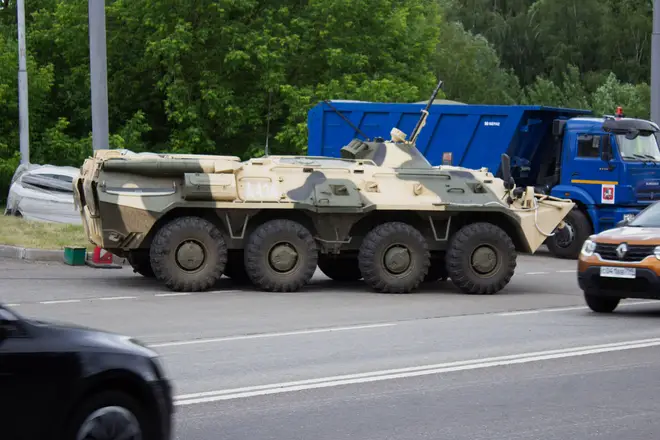
Prigozhin had vowed at the start of the coup: "We’re 25,000 strong, and we’re going to get to the bottom of the lawlessness in this country.
"25,000 are waiting as a tactical reserve, while the strategic reserve is the entire army and the entire country.
"Everyone who wants to, join us. We need to put an end to this disgrace."

Expert: 'The power of President Putin is now more limited than before'